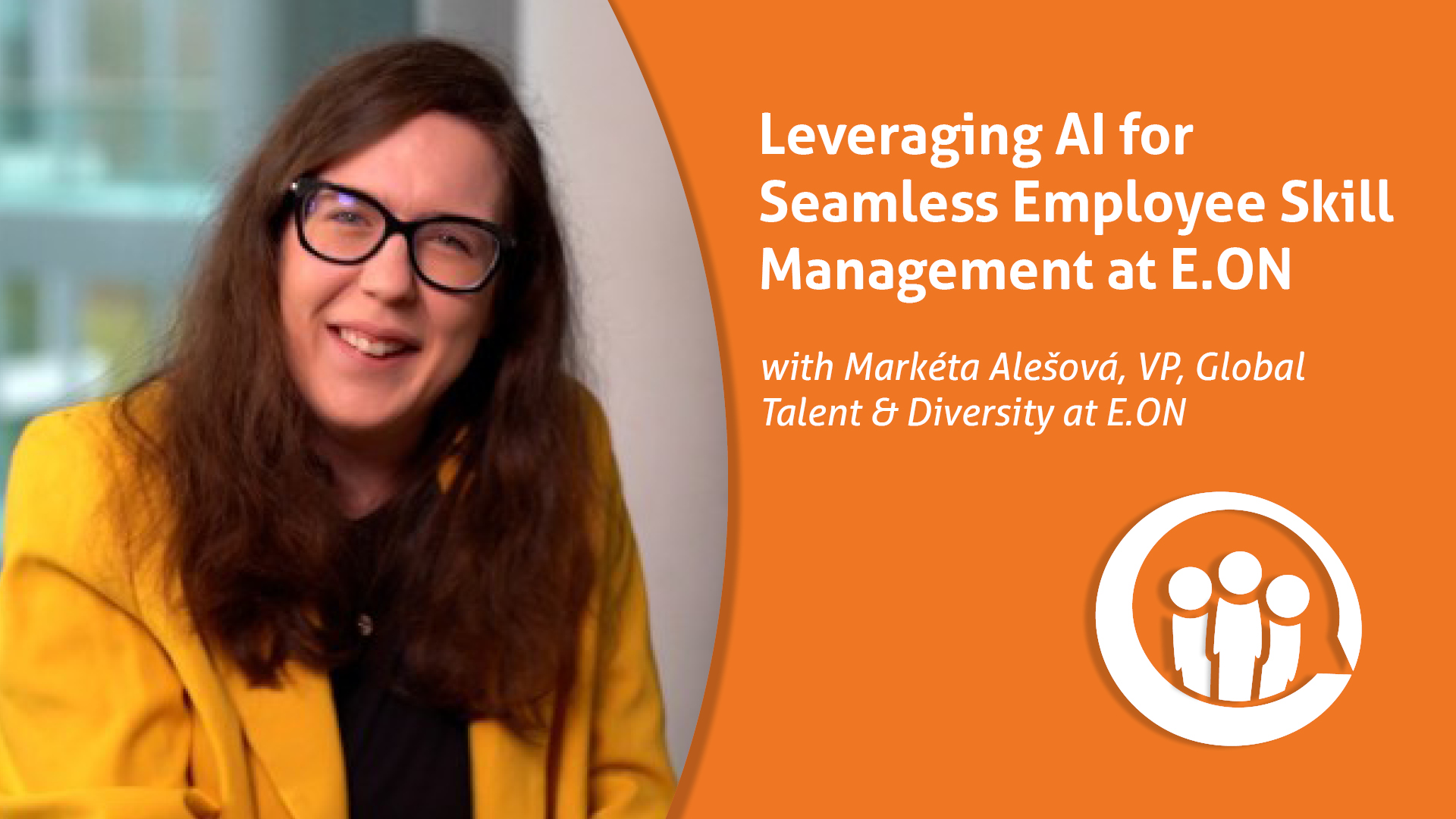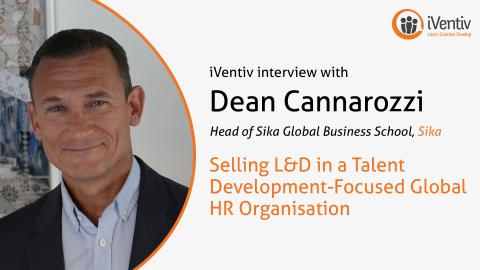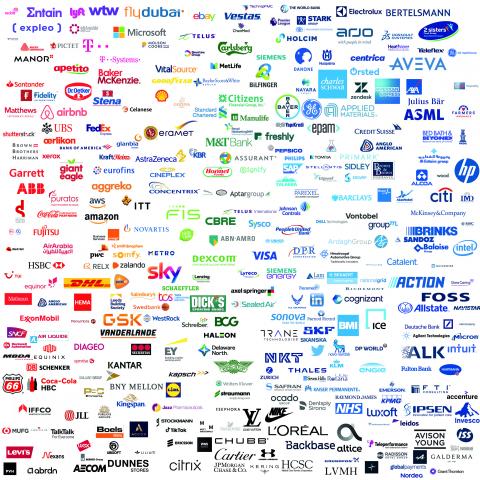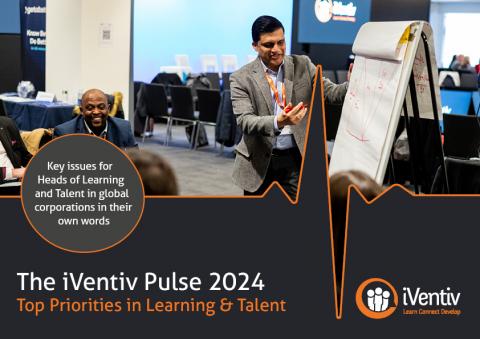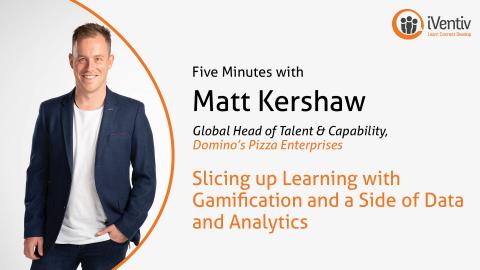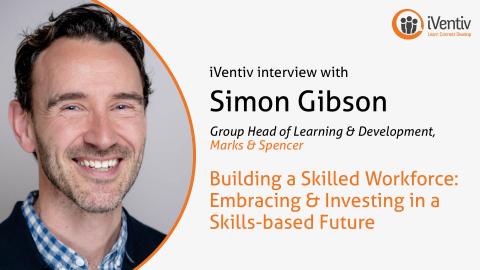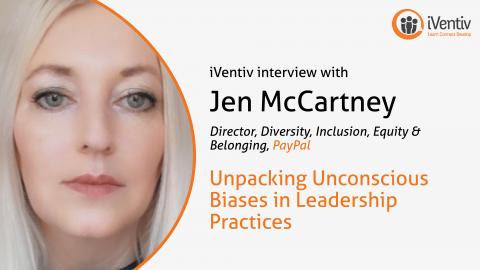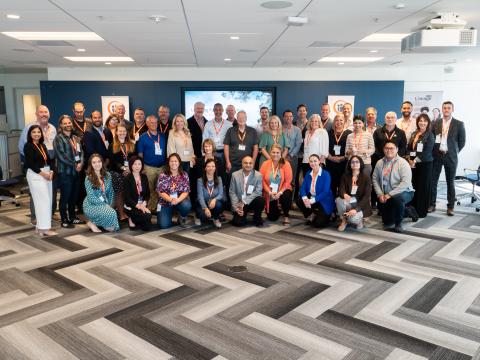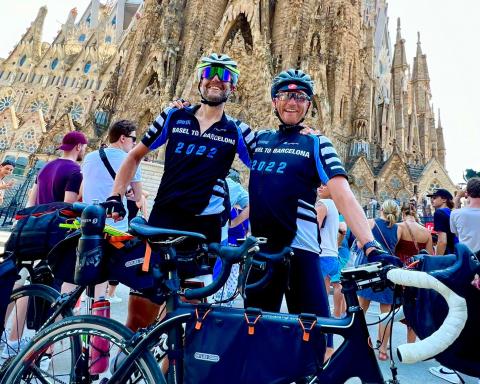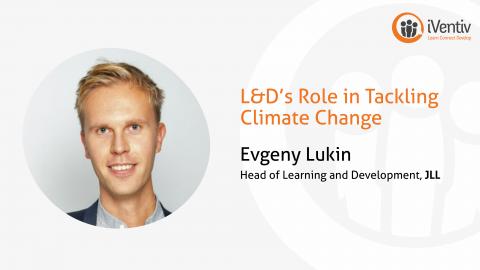Submitted by Kerry Summers on
E.ON’s Global Digital HR Transformation
In an era where digital transformation is redefining the corporate L&D landscape, E.ON has embarked on a journey to revolutionise its HR processes. Markéta Alešová, Vice President of Global Talent and Diversity at E.ON, is at the forefront of this transformation.
“We are trying to empower our employees. We are trying to prepare for the future of work” - Markéta Alešová
With the energy industry undergoing rapid change, E.ON recognises the need for a workforce that is agile, skilled, and digitally enabled. Their HR digital transformation is focused on enhancing the employee experience, leveraging AI for data-driven decision-making, and adopting a skills-based approach to work.
At the heart of this initiative, Markéta explains, is the implementation of Oracle HCM, aimed at standardising and harmonising HR processes. More than just a technological upgrade, this transformation, she says, is about fostering a culture that enables employees to navigate their career journeys more effectively.
Tackling AI and Skill Management
AI is playing a pivotal role in E.ON's approach to skill management. Markéta tell us that the organisation has introduced an ‘opportunity marketplace’, rather than the more widely implemented ‘talent marketplace’, which facilitates skill mapping and career development through AI-driven recommendations.
“When it comes to the topic of creating a skill taxonomy, if that’s something that you do as a manual exercise, by the time that you have finished, it’s outdated.” - Markéta Alešová
E.ON leverages AI to continuously update its skill ontology, ensuring that emerging skills remain relevant for specific roles and career paths.
This AI-powered system, Markéta says, provides employees with personalised learning recommendations based on:
- Their current roles and expected future developments
- Industry-specific skills gaps
- The skills needed to transition to a desired role over the next few years
This innovative opportunity marketplace also enables employees to engage in projects, mentoring, and best practice exchanges. For Markéta, this means that employees can take ownership of their professional growth, while managers gain deeper insights into the skills landscape, allowing them to prioritise targeted upskilling efforts.
The Cultural Shift: Fostering a Skills-Based Organisation
The success of E.ON's AI-driven transformation, Markéta says, isn’t solely dependent on technology. It requires a cultural shift.
“The cultural transformation that comes with the implementation of something like an opportunity marketplace is extremely significant,” Markéta stresses. Instead of imposing strict guidelines, E.ON has opted to give employees and managers autonomy over how they engage with skill-building initiatives. This, she says, encourages a long-term mindset where upskilling happens organically, preparing employees for broader roles within the organisation.
By branding the platform as an “opportunity marketplace” rather than a “talent marketplace,” she adds, E.ON wants to signal that these growth initiatives are inclusive and accessible to all employees.
Striking a Balance Between Complexity and Simplicity
With AI, there is always a risk of overcomplication. As organisations attempt to measure perhaps thousands of skills, many encounter excessive complexity and siloed systems without adequate interaction that hinder usability. E.ON, however, has set out to keep things simple and effective.
“We need the AI that we implement here to serve people, not to serve our own internal HR processes,” Markéta Alešová
To achieve this, E.ON has focused on three core principles:
- User-Centricity – Ensuring that AI tools are designed to support employees in their career growth rather than merely serving HR functions.
- Integration Over Fragmentation – Embedding AI-driven tools within the broader employee experience rather than introducing disconnected solutions.
- AI as an Enabler, Not a Replacement – While AI can identify skill gaps and recommend learning paths, employees remain in control of their career development.
Is AI Changing the Talent Landscape?
Traditionally, Talent Management relied heavily on tools like the nine-box grid to assess employee performance and potential. How is AI presenting an opportunity to rethink these methods at E.ON?
“We still make use of nine-box grids, because it’s just kind of a fool-proof way to visualise where people are on the potential-performance scale,” Markéta says. Yet, AI has transformed Talent Management at E.ON by moving from subjective evaluations to data-driven insights. This shift, Markéta says, allows HR teams to actively scout talent within the organisation based on skill indicators and performance data.
One of the most unexpected learnings from this process, Markéta emphasises, was the sheer amount of hidden talent within E.ON.
“I always expected that AI is going to help us surface hidden talent. And that has proved to be true. What was unexpected was just how much hidden talent we had in the organisation that we truly didn’t know about before.” - Markéta Alešová
While AI provides valuable insights, human judgment remains critical in making final placement and succession decisions. The balance between data-driven insights and human oversight, Markéta underscores, ensures that AI enhances rather than replaces traditional talent management processes.
What is E.ON’s Next Step in Skill Management?
E.ON is now in the final phase of rolling out its opportunity marketplace to over 70,000 employees. Once fully deployed, the next focus will be driving cultural adoption.
“We need to continue with the cultural transformation part, making sure that we showcase success stories and enrich our opportunity marketplace with new functionalities,” Markéta shares.
By fully harnessing AI capabilities across all levels of the organisation, E.ON aims to create a transparent, skills-based ecosystem that prepares employees for the future of work.
Final Thoughts and key takeaways
E.ON’s AI-driven HR transformation offers key takeaways for C-suite executives looking to modernise their Talent Management functions:
- AI-driven skill management fosters a culture of continuous learning and internal mobility
- Cultural transformation is as vital as technological implementation
- Simplicity and user-centricity are essential for AI adoption
- AI should serve as an enabler, providing data-driven insights while preserving human decision-making
For organisations navigating digital transformation, E.ON’s journey serves as a powerful example of how AI can be leveraged to enhance employee experience, unlock hidden talent, and future-proof the workforce.
As the Vice President of Global Talent & Diversity at E.ON SE, Markéta leads transformative HR initiatives, fostering an inclusive culture that attracts and retains diverse talent. With a deep background in digital HR transformation and strategic leadership, Markéta thrives in guiding cross-functional teams to drive impactful changes within dynamic, international environments.
